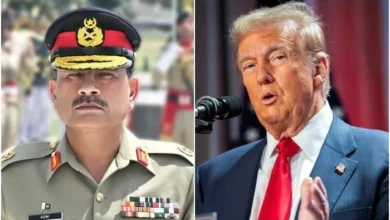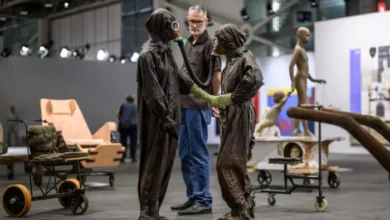Embroiled in controversy on open balloting and leaked videos exposing horsetrading, voting to elect Senators for 37 seats for a six-year term started at 9:00 am and continued till 5:00 pm without any break, while the counting of the votes is still underway.
Polling started under the supervision of the Election Commission of Pakistan (ECP) with a total of 78 candidates contesting from Balochistan, Sindh, Khyber Pakhtunkhwa, and Islamabad.
11 Senate hopefuls from Punjab were elected unopposed on February 25 after disqualification or withdrawal of papers by other contestants. Five seats each went to the Pakistan Tehreek-e-Insaf (PTI) and main opposition Pakistan Muslim League-Nawaz (PML-N), while one was grabbed by the Pakistan Muslim League-Quaid (PML-Q), an aide of the PTI in Punjab and at the Centre.
In the National Assembly, the first vote was cast by Pakistan Tehreek-e-Insaf (PTI) MP Shafiq Arain, followed by Minister for Water Resources Faisal Vawda, Radio Pakistan reported.
Prime Minister Imran Khan, Foreign Minister Shah Mahmood Qureshi, National Assembly Speaker Asad Qaiser, Pakistan Peoples Party (PPP) Chairperson Bilawal Bhutto-Zardari, and Pakistan Muslim League-Nawaz (PML-N) president and National Assembly Opposition Leader Shehbaz Sharif are among those who have cast their votes.
PTI is seeking to wrest control of the Senate from opposition parties. It has 12 seats in the House, and the PPP and PML-N have 12 and 25 seats each.
PTI is looking to go up to 25 seats after the elections, and, along with other coalition parties and independents, have a slender majority in the Senate which the government needs to pass key legislation — including legal reforms sought by global institutions such as the International Monetary Fund (IMF) and Financial Action Task Force (FATF).
In line with the Supreme Court decision and a subsequent ECP statement, voting is taking place through secret votes. The electoral process regulator’s statement had said there is insufficient time to implement any of the suggestions provided by the top court to secure the voting.
A senator serves a term of six years, barring resignation, disqualification, or other extraordinary circumstances. Half of the senators are elected at one time, and the other half three years later.
A total of 52 senators in the House of 104 are set to retire on March 11 on completion of their six-year term. The number includes four of the eight senators from the former Federally Administered Tribal Areas (FATA).
As the seats representing FATA will not be filled due to the merger of the tribal areas with KP in May 2018, the Senate strength will after the election shrink to 100.
The legislators are also voting to elect seven members on general seats including two women and two technocrats in the four provinces. Besides, the election on one minority seat each in KP and Balochistan is also being conducted.
More than 65 percent of the senators due to retire belong to the opposition parties.
In its code of conduct, the election commission had barred President Dr Arif Alvi and the governors of all the provinces from taking part in the election campaigns.
It had also instructed all candidates to open exclusive accounts for their election expenses and to make all transactions through it. They will have to submit their return of election expenses to the returning officer on “Form C” within five days from the date of the election.
The Supreme Court, while announcing its verdict on a presidential reference seeking legal opinion on the holding of Senate elections through an open vote, on Monday had said polls for the upper house will be held through a secret ballot.
The 4-1 majority opinion was announced by a five-judge larger bench, headed by Chief Justice of Pakistan (CJP) Gulzar Ahmed and comprising Justice Mushir Alam, Justice Umar Ata Bandial, Justice Ijazul Ahsan, and Justice Yahya Afridi.
The dissenting note was written by Justice Afridi who observed that “the opinion sought [by the president] is not a question of law within the contemplation of Article 186 of the Constitution of the Islamic Republic of Pakistan, 1973”. He, therefore, abstained from giving his opinion on the case.
The reference was forwarded to the top court in December under Article 186 of the Constitution, which relates to the advisory jurisdiction of the forum, after Prime Minister Imran Khan expressed his desire to curtail the practice of horsetrading in Senate elections by introducing an open-ballot system.
The government has argued that open balloting would introduce transparency into a voting process that has long been plagued by irregularities, with legislators accused of selling their votes.
But the Pakistan Democratic Movement (PDM) opposed the move, and the Jamiat-e-Ulema Islam-Fazl (JUI-F), had filed a petition in the Supreme Court against the Election Amendment Ordinance 2021.
Following two months of proceedings, the court had on Thursday reserved its verdict, later announcing to issue it on Monday.
The following day, the ECP in a statement said the voting will be held “as provided in the Constitution and law as per past practice”.
The apex court, in the eight-page verdict, had said: “It is the responsibility of the Election Commission of Pakistan to ensure that the election is conducted honestly, justly, fairly, and in accordance with [the] law and that corrupt practices are guarded against.”
In the statement, the commission — while observing it was already taking all possible steps to curtail corruption in the elections for the House — had said that a detailed order from the court was still awaited.
In February, President Alvi issued an ordinance — Election (Amendment) Ordinance, 2021 — under which the Senate polls will be held through a show of hands to end the practice of horse-trading.






